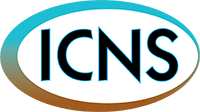
2020 marks an exciting and remarkable milestone in the history of this conference. The conference has grown into an international forum for research and information sharing related to the technical, operational, engineering, and policy facets of communications, navigation, and surveillance—far more expansive than its humble beginnings.
The first ICNS Workshop was held in Cleveland, Ohio, in 2001 and was sponsored by NASA. It was born out of a need to bring together the aviation community that focuses on communications, navigation and surveillance (CNS), including R&D technologists, suppliers, end users, and policy makers. The aspect of “integration” was added to allow advancements in technologies, coming out of the telecommunications revolution, to enable new services for CNS such as free flight, now 4-D trajectories.
The following year the workshop moved to the Washington D.C. area and included a technical conference in addition to the workshop. In 2007 the conference was turned over to the AIAA Digital Avionics Technical Committee for management in partnership with the IEEE Aerospace and Electronic Systems Society. Last year’s conference attracted nearly 200 participants from 22 countries around the world.
This year’s conference is obviously different given the challenges we face with COVID-19 and ensuring we have a safe, effective, and valuable exchange of research, information, and ideas for intelligent communications, navigation, and surveillance (CNS). The 2020 conference theme focuses on the demand for technological support for CNS and air traffic management (ATM) strategies that embrace artificial intelligence (AI), machine learning (ML), and other innovative approaches for enabling the integration of future air transportation systems such as unmanned aircraft systems (UAS); urban air mobility (UAM) and advanced aerial mobility (AAM); commercial space operations; and hypersonic transport operations.
Though we are unable to meet in person, the virtual delivery platform for ICNS 2020 does enable you to view both the plenary and paper presentations for up to four (4) weeks after the conference ends! You’ll be able revisit the conference presentations at your convenience which should be tremendously helpful to those who happen to have conflicting schedule issues.
The ICNS Executive Committee worked tirelessly to provide you with the best possible conference experience and value this year given the situation. In some ways, there are even more opportunities to interact with the presenters and attendees in this virtual meeting environment. Questions and discussions can be carried on well after the live presentation is over this year! Be sure to read the participant instructions and to ask for support if needed. Help is available!
I encourage you to jump into the chat rooms before and after the presentation sessions. Meet and share ideas with as many others as you can—it is what makes our ICNS community so valuable and important. Also, be sure to visit with our conference sponsors before and after the conference. Sponsor presentations will take place after the technical paper programming each day and they will have links to enable private discussions regarding your ICNS questions and needs.
Thank you so much to everyone for participating in ICNS 2020! Special thanks to our conference sponsors, the ICNS Executive Committee who worked many extra, long hours to make this year’s event possible, and to all the plenary leaders, panelists, and authors who are sharing their updates and insights with us this year! Your participation and virtual interactions are more valuable than you can imagine!
Gregory S. Woo, Ph.D.
ICNS 2020 – Conference General Chair
